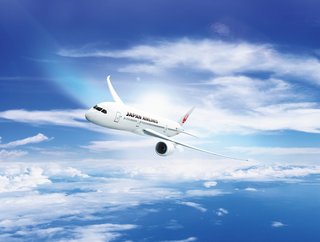Boeing: New research centre expands sustainable partnerships

Committed to strengthening its partnerships, the American multinational aerospace corporation - Boeing - has opened a new research and technology centre in Japan. The new centre will focus on sustainability and support the corporation’s newly expanded Cooperation Agreement with Japan’s Ministry of Economy, Trade, and Industry (METI).
"We are excited to open our latest global research and technology centre here in Japan," said Greg Hyslop, Chief Engineer and Executive Vice President of Engineering, Test and Technology of Boeing.
Boeing and METI broaden their agreement
Broadening their 2019 Cooperation Agreement, Boeing and METI will be placing greater focus on sustainable aviation fuels (SAF), electric, and hydrogen powertrain technologies; and future flight concepts promoting zero climate impact aviation.
In addition, the two will explore the use of electric and hybrid-electric propulsion, batteries, and composite manufacturing to provide new forms of urban mobility.
"Working with terrific partners like METI, the new centre will expand upon Boeing-wide initiatives in sustainable fuels and electrification, and explore the intersection of digitization, automation and high-performance aerospace composites for greater sustainability in our future products and production systems,” added Hyslop.
Boeing’s new research and technology centre (BR&T)
Located in Nagoya, Japan, Boeing Research and Technology (BR&T) centre will further expand Boeing’s research and development footprint in the region; supports its industrial partners and suppliers; and strengthens its group of centres in Australia, China, and Korea.
Committed to the SAF industry
Fully committed to Japan’s SAF industry, Boeing has been accepted as one of the latest members of ACT FOR SKY, a voluntary organisation of 16 companies dedicated to commercialising, promoting, and expanding the use of SAF produced in Japan.
Welcoming Boeing to ACT FOR SKY, Masahiro Aika said: "ACT FOR SKY welcomes the participation of Boeing. We look forward to Boeing collaborating with the other members to ‘ACT’ for the commercialisation, promotion and expansion of SAF in Japan."
Innovating with All Nippon Airways (ANA) and Japan Airlines (JAL)
Signing an agreement with All Nippon Airways (ANA) and Japan Airlines (JAL), Boeing will study the capabilities of advanced sustainable technologies - electric, hybrid, hydrogen, and other novel propulsion systems - to reduce the carbon footprint of aircrafts.
"To ensure the enormous societal benefits of aviation remain available for generations to come, we must continue to partner with capable innovators and leaders to support the industry's commitment to net zero carbon emissions by 2050. We are humbled to join ACT FOR SKY and collaborate with other members to share global best practices and help with the scale-up and demand of SAF in Japan. And we are honoured to open the Japan Research Center and expand our work with airline customers ANA and JAL on advanced technologies to realise zero climate impact aviation,” said Chris Raymond, Chief Sustainability Officer at Boeing.
- ExxonMobil Procurement: Inclusive Sourcing & SustainabilitySustainability
- TotalEnergies: Playing a Key Role in Sustainable ProcurementProcurement Strategy
- SAP and Deutsche Telekom Collab Revolutionises ProcurementDigital Procurement
- Nike Exceeds US$1bn Diverse Supplier Spend Two Years EarlyProcurement Strategy






